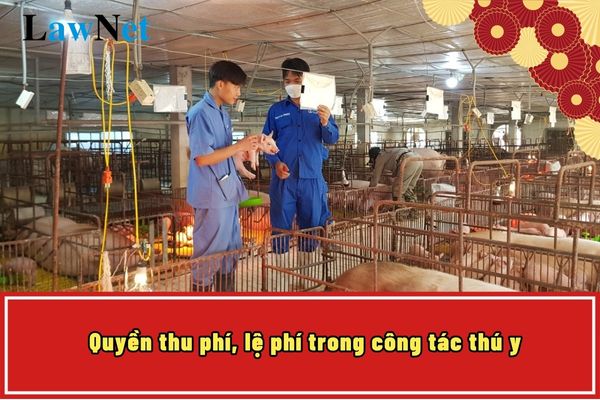Which organizations have the authority to collect veterinary fees and charges in Vietnam? Where are such fees and charges submitted?
Which organizations have the authority to collect veterinary fees and charges in Vietnam?
Pursuant to Article 3 of Circular 101/2020/TT-BTC, the organizations with authority to collect veterinary fees and charges include:
- The Department of Animal Health; Regional Sub-Departments of Animal Health I, II, III, IV, V, VI, VII; Regional Animal Quarantine Sub-departments in Lang Son, Lao Cai, Quang Ninh; Central Veterinary Drug Testing Centers I, II; Central Veterinary Hygiene Inspection Centers I, II; Central Veterinary Diagnostic Center; Sub-Departments with functions in veterinary sector management as specified in Article 6 of the 2015 Law on Veterinary;
- Agricultural Service Centers, Agriculture Departments, Economic Departments under the district-level People's Committees assigned the task of managing the veterinary sector.

Which organizations have the authority to collect veterinary fees and charges in Vietnam? Where are such fees and charges submitted? (Image from the Internet)
Where are the veterinary fees and charges submitted in Vietnam?
Pursuant to Article 6 of Circular 101/2020/TT-BTC regarding veterinary fees and charges are regulated as follows:
Management of fees and charges
1. Organizations collecting fees must remit the entire sum collected into the state budget, except for cases specified in Clause 2 of this Article. The funding for executing tasks and collecting fees is allocated from the state budget in the budget estimation of the collecting organization according to policies, and state budget expenditure standards.
2. In cases where a fee-collecting organization is a state agency with allocated operating expenses from fee collections or a public service provider as specified in Clause 1, Article 4 of Decree No. 120/2016/ND-CP dated August 23, 2016, by the Government of Vietnam, it is allowed to keep 90% of the total fees collected to cover expending content as prescribed in Article 5 of Decree No. 120/2016/ND-CP dated August 23, 2016, by the Government of Vietnam; whereas other related expenditures, including anti-epidemic activities for animals, must contribute 10% of the fees collected into the state budget according to the current state budget ledger’s chapters and sub-items.
Thus, according to the regulation above, veterinary fees and charges are submitted to the state budget, except in cases where the collecting organization is a state agency with allocated operating expenses from fee collections or a public service provider.
The funding for carrying out tasks and collecting fees is allocated from the state budget within the budget estimation of the collecting organization according to policies, and state budget expenditure standards.
From July 1, 2025, will veterinary services be subject to VAT in Vietnam?
According to Clause 10, Article 5 of the 2024 Value Added Tax Law, non-taxable subjects are specified as follows:
Non-taxable subjects
...
10. The following healthcare and veterinary services:
a) Healthcare services include: medical examination, treatment, and prevention for humans, planned birth services, healthcare rehabilitation services; care services for the elderly and disabled; patient transportation, room and bed rental services in healthcare facilities; testing, scanning, imaging; blood and blood products for patients.
Care services for the elderly and disabled include healthcare, nutrition, and organizing cultural, sports, entertainment activities, physical therapy, rehabilitation for the elderly and disabled.
In cases where the treatment services package regulated by the Ministry of Health includes the use of medications, the fee for such medications within the treatment services package is also non-subject to VAT;
b) Veterinary services include: medical examination, treatment, and prevention services for pets.
11. Funeral services.
12. Maintenance, repair, construction activities with more than 50% of the investment from public contribution or humanitarian aid for historical-cultural relics, scenic sites, cultural, and artistic works, public service works, and social policy housing.
13. Educational and occupational training activities as regulated by education and vocational education law.
14. Radio and television broadcasting funded by the state budget.
15. Publishing, importing, distributing newspapers, magazines, newsletters, journals, political books, textbooks, curricula, legal documents, scientific-technical books, books serving foreign information, books printed in ethnic minority scripts, and propaganda posters, images even in the form of audio or video tapes, discs, and electronic data; money, and money printing.
...
According to the above regulations, veterinary services including medical examination, treatment, and prevention for pets are non-subject to VAT.

